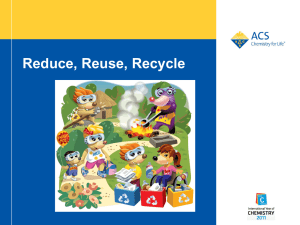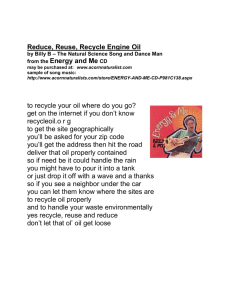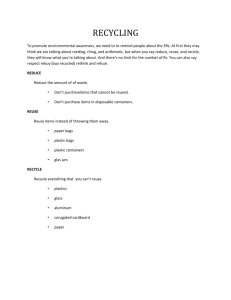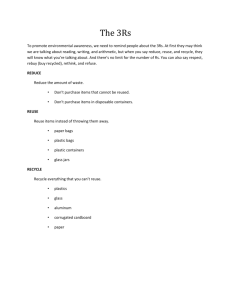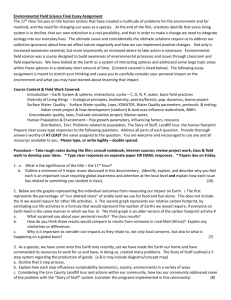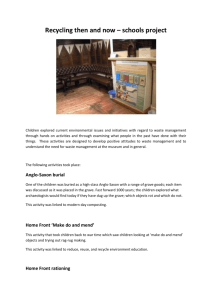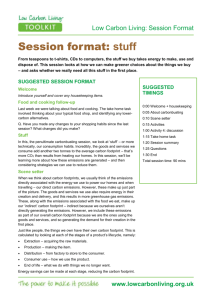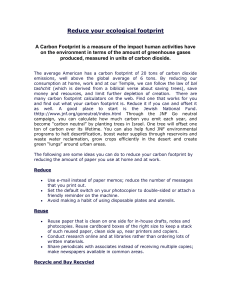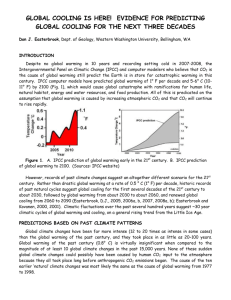Implications of Farming, Sheet 7
advertisement
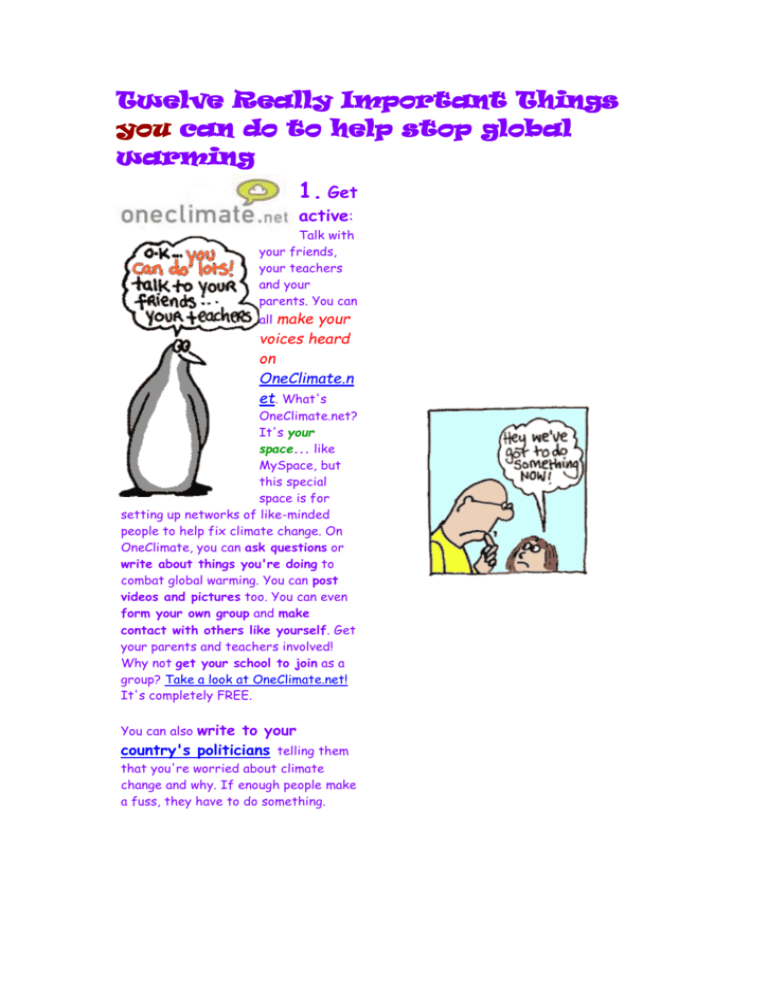
Twelve Really Important Things you can do to help stop global warming 1. Get active: Talk with your friends, your teachers and your parents. You can make your voices heard on OneClimate.n et. What's all OneClimate.net? It's your space... like MySpace, but this special space is for setting up networks of like-minded people to help fix climate change. On OneClimate, you can ask questions or write about things you're doing to combat global warming. You can post videos and pictures too. You can even form your own group and make contact with others like yourself. Get your parents and teachers involved! Why not get your school to join as a group? Take a look at OneClimate.net! It's completely FREE. write to your country's politicians telling them You can also that you're worried about climate change and why. If enough people make a fuss, they have to do something. damage you're doing and get to be 2. Know what an expert! It's not much use trying to change something if you're part of the problem or you don't understand what it's all about! Why not start by finding out what your Carbon Footprint is. (My friend Jasmine wrote to suggest this!) What's a Carbon Footprint? You can easily work out what your carbon footprint is with Carbon Control's Carbonator. If you feel you need to find out more about global warming, try some of my links. And watch out: Don't believe all you read or see. Not everybody tells the truth! 3. Why drive when you can walk?! If your family has a car, get them to use it less. Walk to the shops. Walking, running, skipping are all much more fun than sitting in a boring uncool car. If you need to travel further than you can walk, use a bus, metro or train if you can. 4. Make your own climate! Turn the heating down in winter. If you're cold, wear more clothes! Turn the air conditioning down in summer or use a fan. Hot tip from a cool penguin When it's hot, dress cool; When it's cool, dress hot! 5. Shop locally: If you can, buy your food from local farm shops and try and avoid imported goods. Or get your family to join a veg box scheme. Trucks and planes bringing in food and stuff from other countries, or from distant parts of your own country, use huge amounts of fuel. 6. Travelling light: Don't travel long distances unless you really have to. Particularly try and avoid using aeroplanes and big, gas-guzzling cars like SUVs. See if your friends and parents could holiday locally 7. Get your parents to change their driving habits... and their car. Cars guzzle fuel, but they use much less if people drive them gently and keep below speed limits. Big SUVs make about six times their own weight in CO2 each year. A small efficient diesel car covering the same distance not only uses much less fuel; it makes two thirds less CO2. 8. Solar energy is free: see if you can get your parents and friends interested in free solar energy -that's energy from the sun and wind. You can get much of your hot water and heating from the sun and even generate electricity. And it's exciting building all these things. If you live in a windy place, a wind turbine - also called 'windmill'- really is a serious option. More and more people are installing them and more and more companies are producing well-designed, sturdy machines. Generating your own power is a great way to reduce your carbon footprint. 9. Eating: Learn to cook! Home cooking is not only fun, it means you don't have to drive to a takeaway or fast food restaurant. Result? Less pollution. If you make a garden, you can grow much of your own food. Did you know that if you eat fewer meat and dairy products, you can reduce greenhouse gas output? (Here's why.) And composting your waste food means it doesn't have to be trucked away to a landfill waste dump where it will cause more pollution including methane, a powerful greenhouse gas. [why doesn't composting make methane?] Some Cool Kids - aged between 11 and 14 in San Diego, California, USA - are fighting against global warming in a really smart way. They've made a website which explains why eating much less meat is so important. It's a great site so please take a look. You can join them and commit to eating less meat! 10. Reduce, reuse, recycle: Remember your three Rs! Reduce: the most important. If you don't buy so much stuff in the first place, then you don't need to reuse or recycle it. Reuse whatever you can (like plastic supermarket bags). If you can't reuse something, Recycle it! 11. Turn off and shut it! Turning things off may seem a boring turn-off hee hee! . But leaving lights, heating, air conditioning, computers, TVs and stuff on when you don't need them wastes a lot of energy. Turning them off saves money too! "Put t' wood in t' 'ole" if it's warm in one room and cold in another. The door helps keep the heat in. Leaving things on standby (like TVs, computers and stuff) also uses a surprising amount of See more of my cartoons about this! energy. 12. Psst! Don't keep this a secret: the future is DTQs Eh?!? What?!? This is one cool secret which no one seems to know about so you really must tell everyone! Don't be put off if you don't know what DTQs are; I didn't either. But they look like the best way to stop global warming and energy shortages. So get your head round DTQs here and then be sure to tell everyone! Way to go... Sun-powered cycling How can you use solar power for cycling? Simple: plants use the sun to make and store energy. Your food mostly comes from plants (or animals that have eaten plants). The food gives you energy... so when you walk or jump on your bike, you too are using stored solar power. So you see climate change is not all gloom and doom. There's plenty you can do. Please please remember: how you choose to use energy affects all life on Earth. The more energy you use, the more the planet warms up. So please think before you act... and turn off that light. Everything you do like that helps a little!
